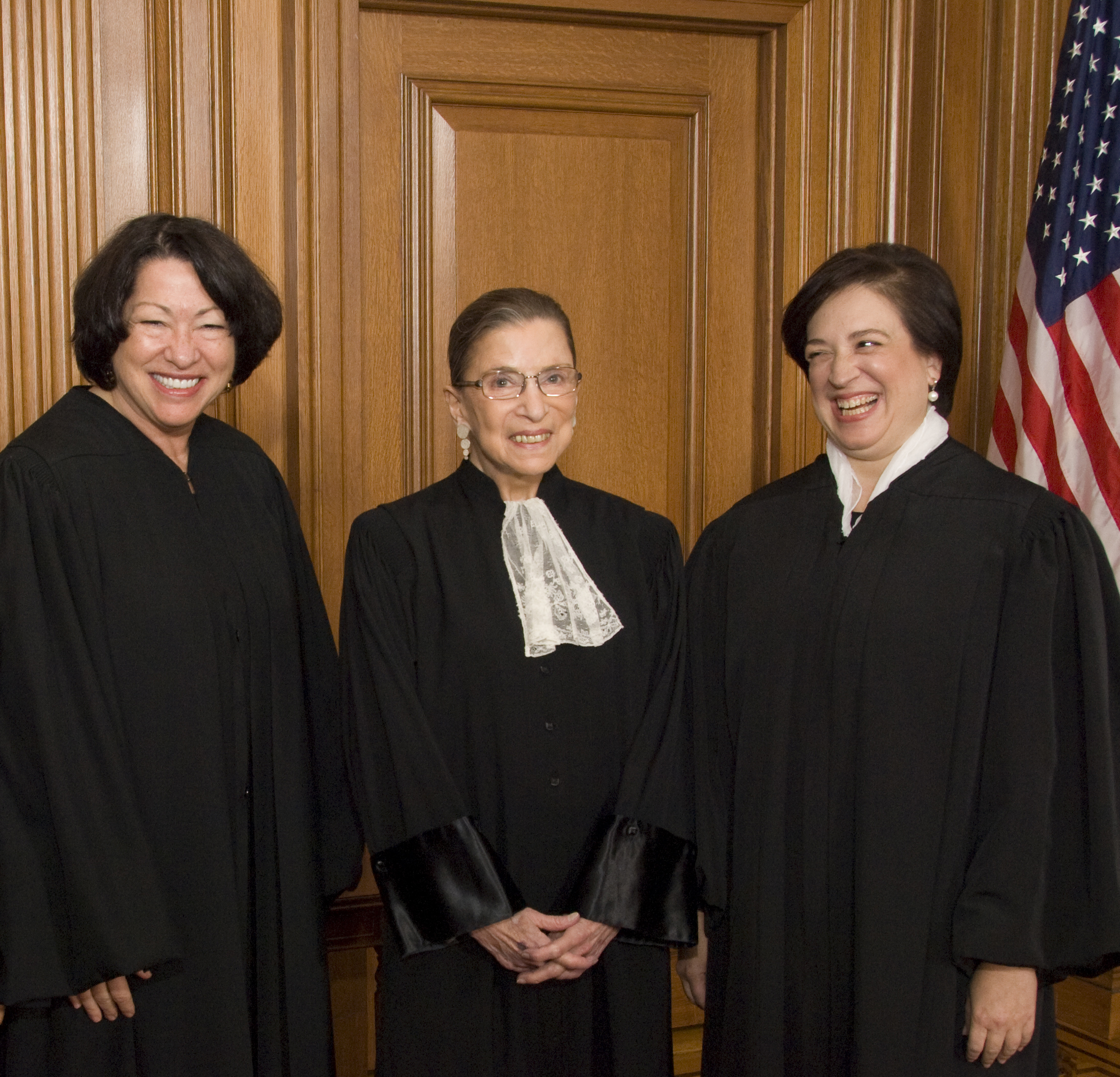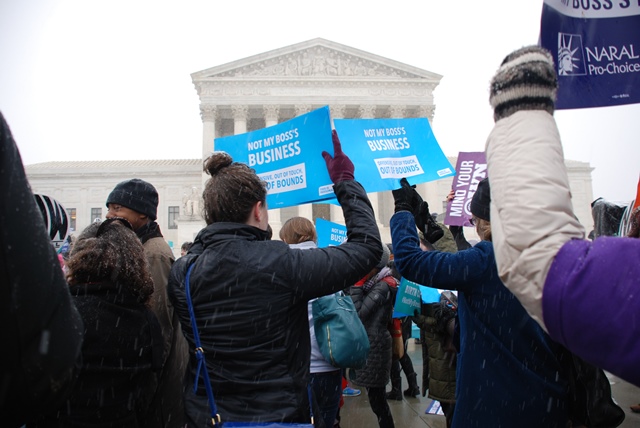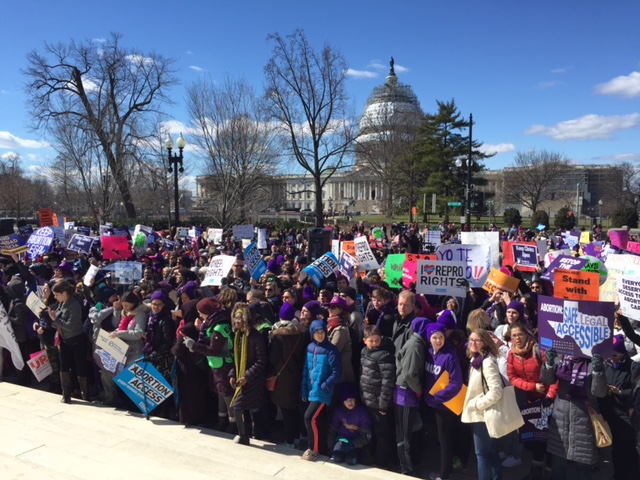I Went to a Fake Women’s Health Center, and Here’s What You Need to Know
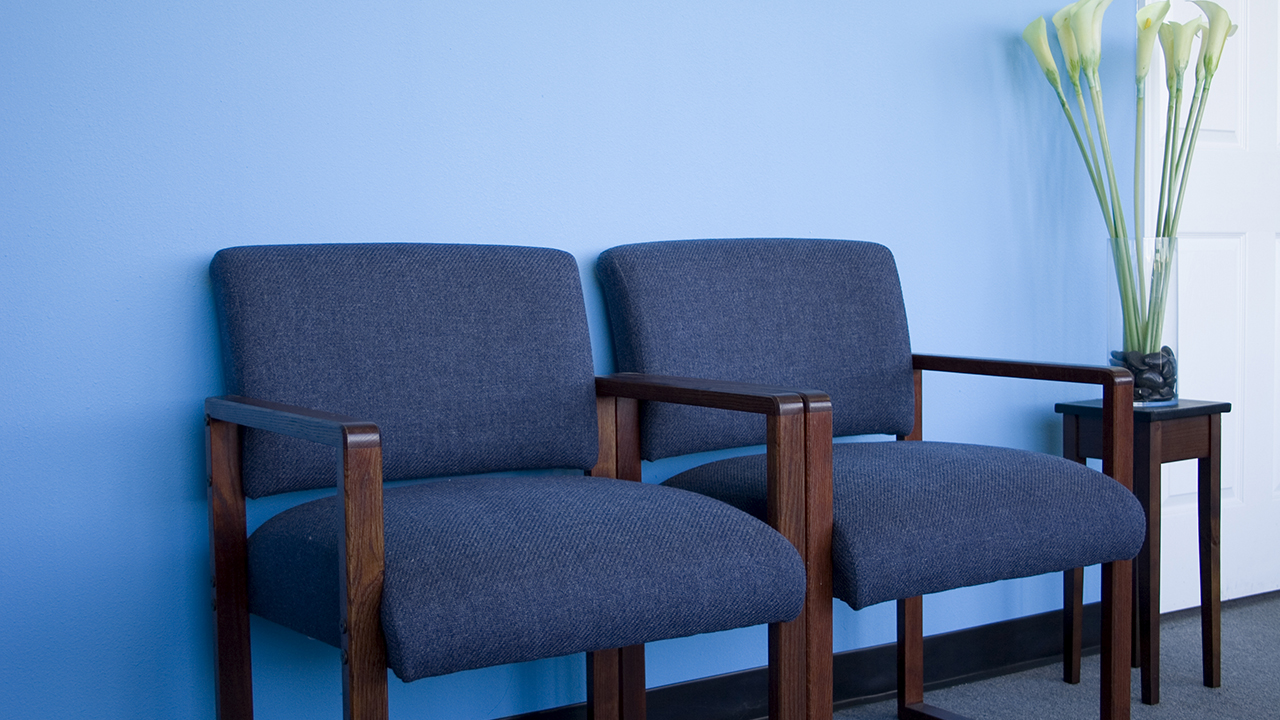
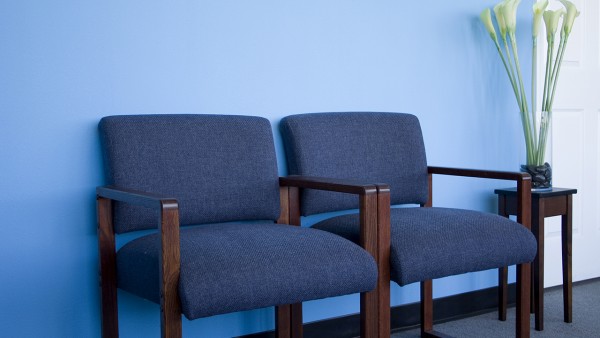 Last month, in a huge blow to efforts to ensure that women are not deceived when looking for pregnancy-related information, the Supreme Court ruled that anti-abortion counseling centers – or so-called “crisis pregnancy centers” (CPCs) – cannot be legally compelled to provide women with accurate disclosures regarding their reproductive options. The Court’s decision affirmed that thousands of fake women’s health centers across the country can continue to intentionally deceive women in making decisions about their own bodies.
Last month, in a huge blow to efforts to ensure that women are not deceived when looking for pregnancy-related information, the Supreme Court ruled that anti-abortion counseling centers – or so-called “crisis pregnancy centers” (CPCs) – cannot be legally compelled to provide women with accurate disclosures regarding their reproductive options. The Court’s decision affirmed that thousands of fake women’s health centers across the country can continue to intentionally deceive women in making decisions about their own bodies.
I found this ruling especially disheartening as I reflected on my own disturbing experience at a fake women’s health center a few months ago, which I visited as a friend of someone with an unexpected pregnancy. Unfortunately, my experience matched the appalling descriptions found online. As many fake women’s health centers remain unregulated and continue to outnumber abortion clinics at an alarming rate (with more than 3,000 CPCs and less than 800 abortion clinics nationwide), being able to identify them is important now more than ever, particularly if you’re looking for information on the full range of your pregnancy options. And even if you’re aware of their existence, identifying them can be difficult because of the deceptive practices they employ. Based on my experience, here are some warning signs to help identify whether or not a facility is a fake women’s health center.
Explore the website and its services
Identifying a fake women’s health center by its website can be tricky since many use it as an initial disguise for their anti-abortion ideology. Comprehensive studies have found that a vast majority put false medical information on their website. I actually found my local fake women’s health center’s website as the first hit when I searched “abortion clinic”- a common strategy used in order to reach women seeking abortion. The center I visited indicated through its advertising and information that it offered abortions, but it wasn’t until I looked more carefully at their materials and asked more specific questions that I realized they did not. The fake women’s health center had also recently changed its title to “The Pregnancy Resource Center of [the County]” in an effort to sound government-affiliated.
If you suspect you’re on a fake women’s health center website, check out what services it claims to offer. Many centers may be very explicit in providing pregnancy testing and/or ultrasounds, but will have vague descriptions of its “options counseling,” especially regarding abortion. See if any of the staff actually has medical training, or if the people providing these services are medical professionals, such as nurses or doctors. The ultrasounds and pregnancy tests that are commonly offered across such centers aren’t always provided by someone who has been trained to do so, meaning that their presence does not indicate the facility is a licensed medical center. My local fake women’s health center directly stated that its services were “medically-informed,” but never mentioned having licensed professionals on staff (because it doesn’t- most don’t), so be wary of how the website’s broader claims are backed up. Look for evidence, not just statements. When in doubt, ask direct questions.
Look for negative and inaccurate abortion information
Since the goal of fake women’s health centers is to intimidate women out of even considering abortion, any information provided on abortion will be negative (and, likely, not true). A congressional study found that 87% of fake women’s health centers provide false or misleading information on abortion specifically.
My own experience at a fake women’s health center was coercive in this way, to say the least. Although I was initially greeted by a warm and welcoming staff member, things quickly changed. After telling her of my friend’s situation, I was bombarded with antagonizing literature boasting blatantly false information on abortion.
One brochure was ironically titled You Have a Right to Know, and alleged that abortion “predisposes” a woman to breast cancer and infertility, despite the fact that both claims have been proven false time and time again. Another booklet warned of the (completely fabricated) psychological impacts of abortion by listing depression, PTSD, and suicide as outcomes associated with “post-abortion syndrome”-a condition that has been researched repeatedly and proven nonexistent.
When I pointed out the multiple false claims presented to women in the materials to the CPC’s director, she acknowledged some inaccuracies, only to then tell me that “many facts can be disputed with research.” Many fake women’s health centers – like the one I visited – are knowingly deceptive to women across the country every single day, and being aware of the facts can help in identifying them.
Pay attention to the terrible gender stereotypes they are peddling
Beyond just providing false information on abortion, the fake women’s health center I went to even criticized women for having any sexuality. The center’s director gave me a pamphlet that explicitly shamed women for having any sexual thoughts. It claimed that something is “wrong” with sexually active women, but excused men for wanting sex because “that is how they are made.” Another brochure encouraged women to wear “non-revealing” outfits and to avoid being alone with men to “protect their virginity.” Both of these statements effectively place the blame of sexual assaults on women, meaning that fake women’s health centers are reaching beyond just an anti-choice ideology and harmfully reinforcing rape culture.
I asked the center’s director about the pamphlets’ ridiculing tone, and she simply told me that “recognizing how young girls are feeling is only compassionate, and certainly not coercive.” Yikes.
Even though I wasn’t going in for pregnancy resources for myself, the fake women’s health center found a way to target and ridicule me as a woman- all while under the guise of being a legitimate facility. If you find that a center features materials on “sexual education” that shame women, use caution: it may be a fake women’s health center.
Be an advocate for accurate pregnancy information
You may be wondering what you can do to oppose fake women’s health centers and support those that need real pregnancy information and support. There are several things:
- You can help by identifying and educating others on the presence and dangers of fake women’s health centers in your area – #ExposeFakeClinics is a great place to look for action ideas.
- You can support your local licensed abortion provider.
- It’s also important to locate reputable alternatives to the material resources offered by fake women’s health services. You can support unbiased organizations in your community that provide resources such as clothes, car seats, food, and parenting classes to assist parents struggling to make ends meet.
In light of the Supreme Court’s disappointing ruling last month, it’s more important than ever to be an advocate for accurate reproductive health information and care for women in your community.

